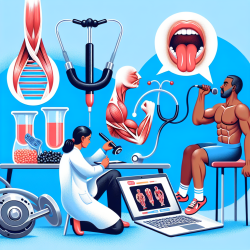Pharmacogenomics, the study of how genes affect a person's response to drugs, is revolutionizing pediatric medicine by providing insights into the genetic factors that influence drug efficacy and safety. Recent research highlights the potential of pharmacogenomics to mitigate adverse drug reactions (ADRs) in children, a population particularly vulnerable due to their unique physiological characteristics and developmental stages.
The Role of Pharmacogenomics in Pediatric Medicine
Adverse drug reactions are a significant concern in pediatric care. Children often respond differently to medications than adults due to developmental changes in drug metabolism and clearance. Pharmacogenomics offers a promising approach to understanding these differences by identifying genetic variations that affect drug response.
Research has shown that genetically controlled variations can significantly impact the incidence and severity of ADRs in children. For example, studies on codeine have revealed that certain genetic polymorphisms can lead to severe toxicity in children who metabolize the drug too quickly or too slowly. This understanding has prompted changes in clinical practice and public policy, such as the reduced use of codeine in pediatric settings.
Implementing Pharmacogenomic Insights
Practitioners can improve pediatric care by integrating pharmacogenomic insights into their practice. Here are some ways to get started:
- Stay Informed: Attend conferences, webinars, and read publications on pharmacogenomics to stay updated on the latest research findings.
- Genetic Testing: Consider incorporating genetic testing into routine clinical assessments for children with high-risk conditions or those experiencing ADRs.
- Collaborate with Geneticists: Work with geneticists and pharmacologists to interpret test results and tailor treatment plans based on individual genetic profiles.
- Educate Parents: Inform parents about the benefits of pharmacogenomics and involve them in decision-making processes regarding their child's treatment.
The Future of Personalized Medicine for Children
The potential of pharmacogenomics extends beyond improving safety; it also opens avenues for personalized medicine. By understanding genetic predispositions, healthcare providers can select the most effective medications and dosages for individual patients, reducing trial-and-error prescribing and enhancing therapeutic outcomes.
The field is still evolving, but its implications are profound. As more research emerges, practitioners are encouraged to contribute to this growing body of knowledge by participating in studies or initiating their own investigations into pharmacogenomic applications in pediatrics.
For those interested in delving deeper into this topic, I recommend reading the original research paper titled Pharmacogenomics and adverse drug reactions in children.










